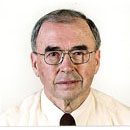
Then the army, after firing off their words, left town. No one was killed. It was all quiet on the western front. The president’s opposing army had moved east down the Maury to the James to fight the next battle — to win thirteen votes, the thirteen electoral votes that the pundits say are crucial to the outcome of the war. As a result, the Old Dominion has become the nation’s newest political battleground.
But why did Mr. Romney come to Lexington? Why give a speech in front of six military service flags and 250 uniformed cadets? Maybe, just maybe, this war is not all about jobs. Foreign policy has crept in. Or shall we say that a place called Libya, a time called the Arab Spring and a conflict called Israel-Palestine have reared their ugly heads.
Sitting presidents have the advantage over their challengers in debating foreign policy. However, that did not stop John McCain in ‘08 from working the other side of VMI’s Parade Grounds. The senator kept it simple. He only dealt with Iraq. For some reason, the governor found it too difficult to only deal with one country — so he dealt with six, all in just 23 minutes, a new foreign policy record. With more time I’m sure Mr. Romney would have told us how to deal with a Chinese laundry list of foreign policy problems.
As a result of attempting to cover so much territory in so little time, Mr. Romney failed to make any world news. American leadership is not a controversial idea. Worse, he provided no new targets for the opposition to shoot down. Instead, the established Republican candidate talked about how he would run the Middle East, one of many parts of the world where Mr. Obama does not believe there needs to be U. S. involvement, except to smile, speak softly and carry a little stick.
Why during a general election do good candidates allow themselves to try to appease everyone and end up giving bland speeches? Why write words for the TelePrompTer, a machine that can neither see nor hear? Why not write speeches for those who breath and can think? My answer: candidates hire only those advisors, “hired guns,” who tell them how to play it safe. Their mission: avoid losing the election, rather than winning it.
So, what about Romney’s Lexington campaign? Will it be as decisive as Gettysburg in that other war? No. It is unlikely that a single vote was changed as a result of his VMI speech. Nonetheless, in modern political warfare there are these rules: (1) all incoming fire must be answered; (2) all policy vacuums must be filled and (3) don’t give the opposition any openings.
As a result, political campaigns never become marketplaces of ideas. To this former political junkie, politics is no longer fun. Sad.
Yet we are constantly told that 2012 is a critical presidential election, that there are significant differences between the two candidates and their parties. This is all too true. But the differences are well hidden by the hired guns, little people who are unwilling to let the voter in on their boss’s big ideas.
So, no big idea was born in Lexington on October 8, 2012. Nevertheless, a presidential candidate did come to our small town, if only as a backdrop for television. I can remember during the early days of television when everyone said that the day of the whistle stop was over, that Harry Truman’s 1948 train would be the last one out of the station and that campaigns would henceforth be conducted out of TV studios. They were right about trains, but wrong about everything else. The American voter still wants to see their candidates face-to-face, not through Facebook. Thank God! What a great country! In the flesh!










